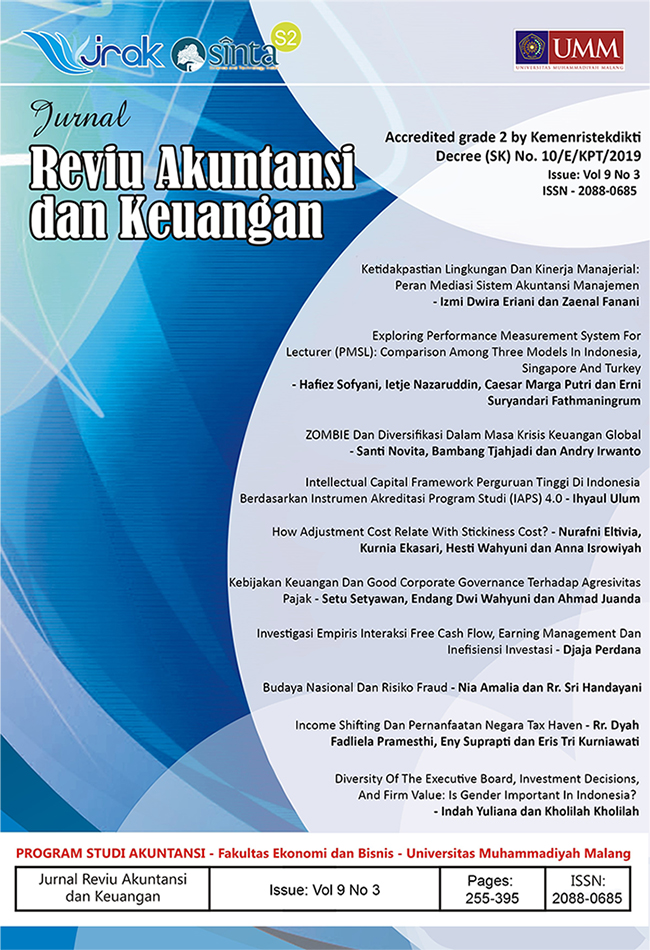KEBIJAKAN KEUANGAN DAN GOOD CORPORATE GOVERNANCE TERHADAP AGRESIVITAS PAJAK
DOI:
https://doi.org/10.22219/jrak.v9i3.9845Keywords:
Tax Aggressiveness, Financial Policy, Good Corporate Governance (GCG)Abstract
This research aims to analyse the effect of financial policy and good corporate governance (GCG) on tax aggressiveness. Financial policies are prokated with leverage, capital intensity and inventory intensity. The GCG used are the institutional ownership, independent Board of Commissioners, audit committees and audit quality. The population is manufacturing sector companies listed on the Indonesia Stock Exchange (IDX) period 2016-2017. Sampling method is used purposive sampling and obtained as much as 56 samples. Data analysis techniques use multiple linear regression using the SPSS 23. The results show that financial policies have an effect on tax aggressiveness. While the GCG on the independent Proxy Commissioner and Audit Committee has an effect on tax aggressiveness, while the other proxies are the ownership of the insitution and audit quality does not affect the aggressiveness of the tax.
Downloads
Downloads
Published
Issue
Section
License

Jurnal Reviu Akuntansi dan Keuangan is licensed under a Creative Commons Attribution-NonCommercial-ShareAlike 4.0 International License.
Authors who publish with this journal agree to the following terms:
- Authors retain copyright and grant the journal right of first publication with the work simultaneously licensed under a Creative Commons Attribution-NonCommercial-ShareAlike 4.0 International License that allows others to share the work with an acknowledgement of the work's authorship and initial publication in this journal.
- Authors are able to enter into separate, additional contractual arrangements for the non-exclusive distribution of the journal's published version of the work (e.g., post it to an institutional repository or publish it in a book), with an acknowledgement of its initial publication in this journal.
- Authors are permitted and encouraged to post their work online (e.g., in institutional repositories or on their website) prior to and during the submission process, as it can lead to productive exchanges, as well as earlier and greater citation of published work (See The Effect of Open Access).










